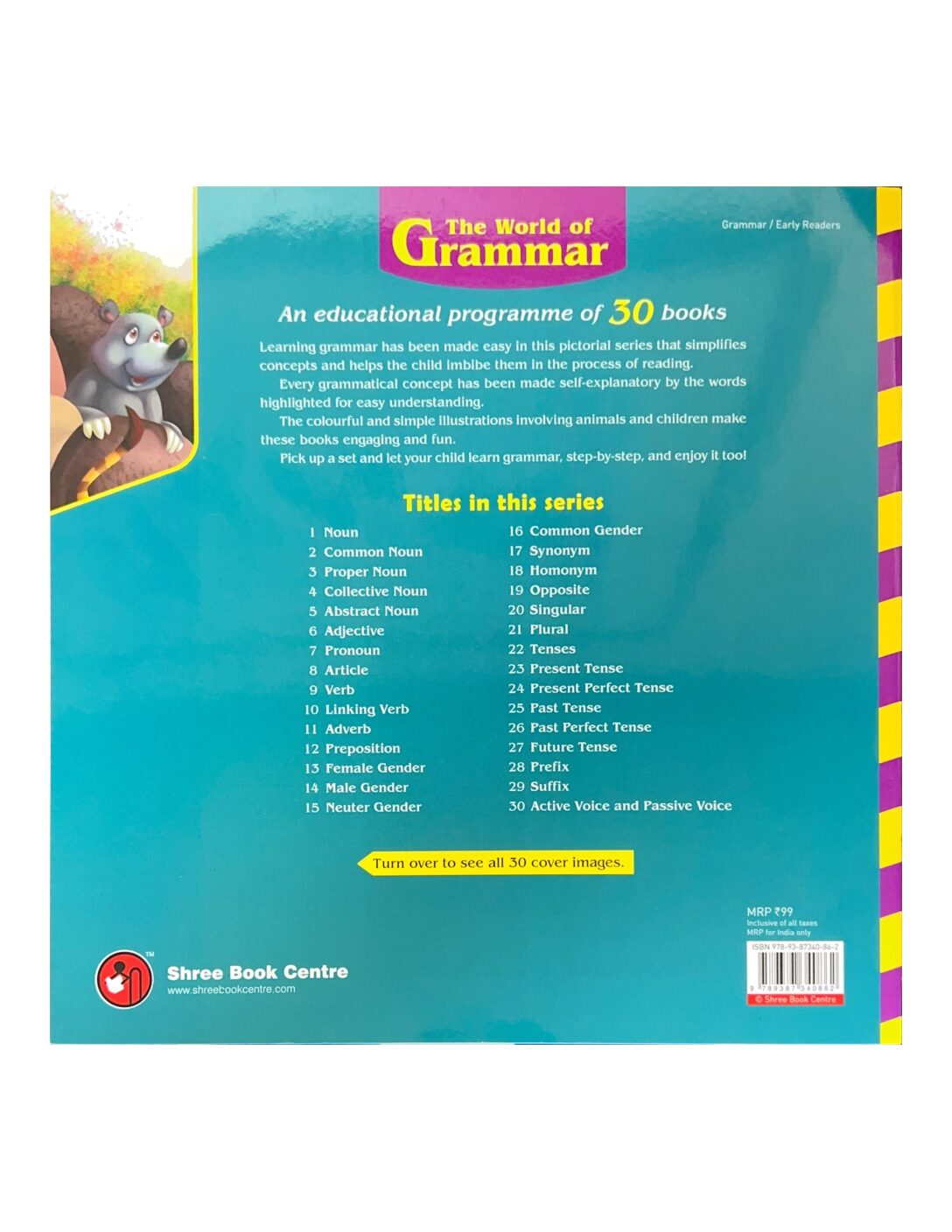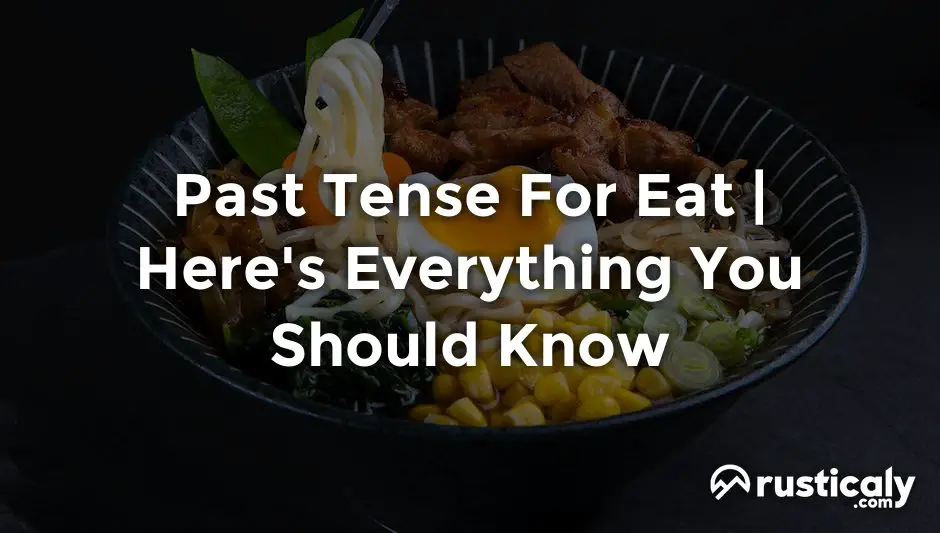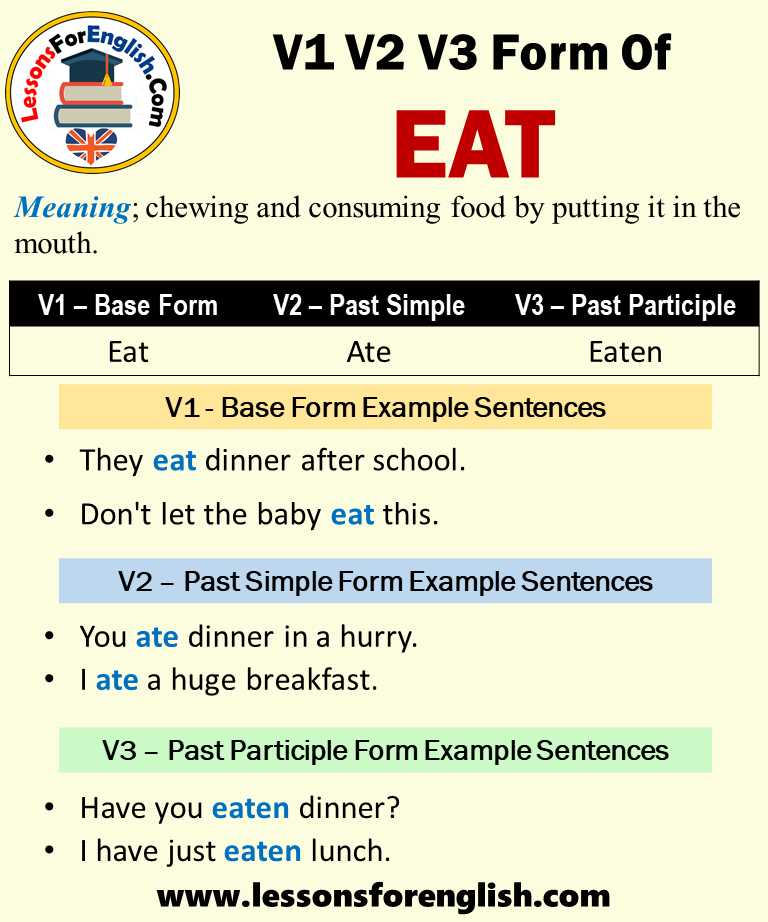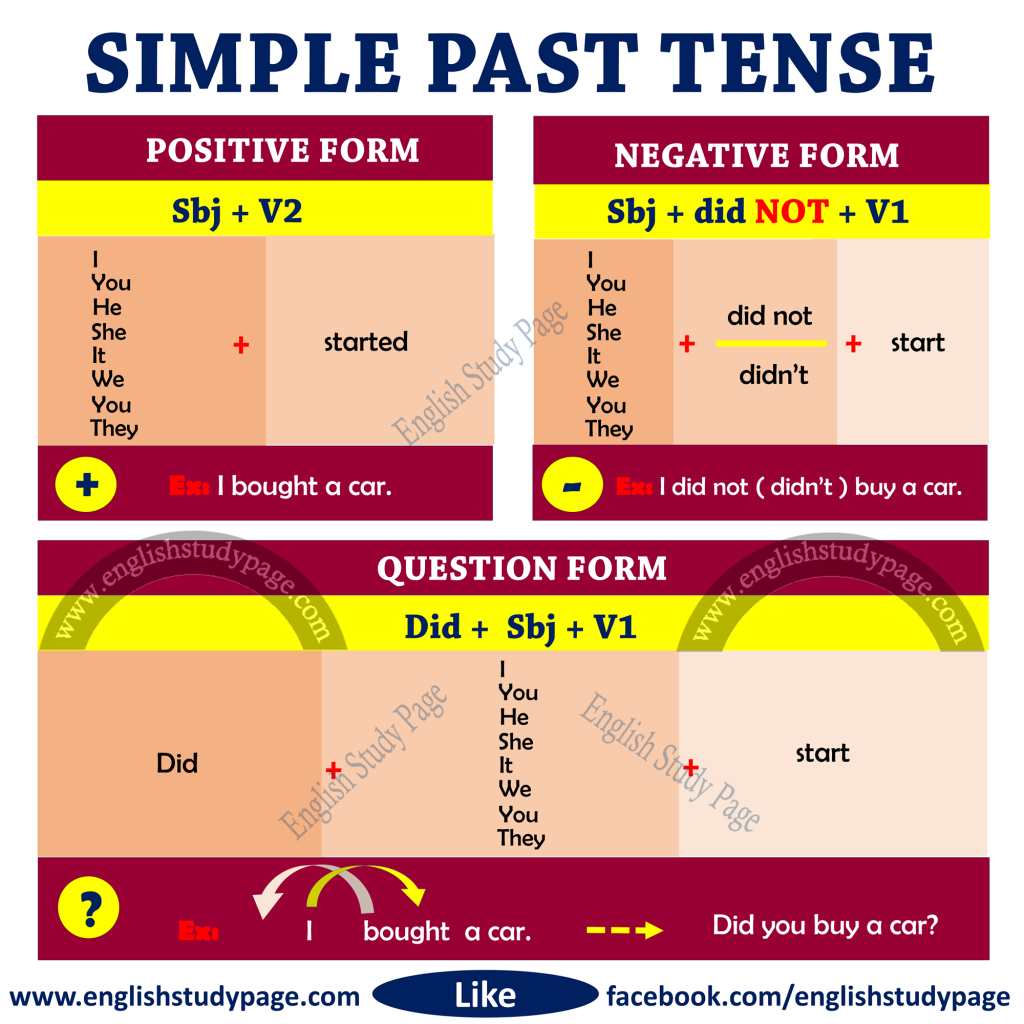
Past Tense by Lee Child Penguin Books New Zealand
It is used to describe a completed action in the past. For example: I ate breakfast this morning. She ate lunch with her friends yesterday. They ate dinner at a fancy restaurant last night. As you can see, the simple past tense is formed by adding '-ed' to the base form of the verb.

Past Continuous Tense Examples EnglishTeachoo
Answer The past tense of eat is ate . The third-person singular simple present indicative form of eat is eats . The present participle of eat is eating . The past participle of eat is eaten . Find more words! eat Similar Words took drank drunk consumed imbibed ingested swallowed took in devoured downed chomped on fed on gobbled up gorged on gulped

41+ Grammar Tenses Background
What is the past tense of "eat?" The past tense (past participle) form of "eat" is "ate." The infinitive of the word form is "eat." The present participle form is "eating." The past tense form is "ate" and past participle form is "eaten." To learn how to use these words, refer to the sentence examples provided below.

Eat Verb Forms Past Tense, Past Participle & V1V2V3 » OnlyMyEnglish
English British vs. American English Irregular verbs eat Infinitive to eat Preterite ate Past participle eaten Model : eat Auxiliary : have, be Other forms: eat oneself / not eat Contractions Advertising Indicative Present I eat you eat he/she/it eats we eat you eat they eat Preterite I ate you ate he/she/it ate we ate you ate they ate

Simple past tense general readin… English ESL powerpoints
"Eaten" is a past participle, which we usually combine with "have" or "be" to create the present, past, or future perfect tense and to express that eating was completed or will be completed before another event or a specific time. In this article, we'll explore past tenses and the use of past participles.

English Study Here
to affect something by gradual destruction or consumption —usually used with into, away, or at the loss was really eating at her to defeat, conquer, or overwhelm completely: CRUSH was eaten alive by the competition How Do You Conjugate Eat? Here are the other verb conjugations of the word eat, including the past tense verb forms:

Verb Present Tense and Past Tense Worksheet with Answers
past participle: (to) eat eating eat en definition in Spanish in French in Italian Indicative Perfect tenses Continuous (progressive) and emphatic tenses Compound continuous (progressive) tenses Conditional Imperative Subjunctive *Blue letters in conjugations are irregular forms. ( example)

The World of Grammar Series Let’s Explore Past Perfect Tense Pen International
The past tense in English describes events that have already happened. How to form the past tense in English: take the present tense of the word and add the suffix "-ed"" .. but it doesn't work with eat if you add ed to eat it will be eated witch doesn't make sence the way you wright eat in the past is ate.

Perbedaan Simple Past Tense dan Present Perfect Tense
Past Simple - "He ate cornflakes for breakfast." Past Perfect Simple - "He had already eaten breakfast when he got to work." Past Perfect Continuous - "He had only been eating his breakfast for 2 minutes when his boss phoned." The Present . Present Continuous - "It is 12.15 and he is eating lunch."

Simple Past Tense of Eat LeonardoknoeRivas
English verb conjugation TO EAT Irregular verb: eat - ate - eaten Indicative | Conditional | Imperative | Infinitive | Participle Indicative Present I eat you eat he eat s we eat you eat they eat Present continuous I am eat ing you are eat ing he is eat ing we are eat ing you are eat ing they are eat ing Preterite I ate you ate he ate we ate

45+ Eat Past Tense Most Popular Sado
1. I too much cheese yesterday. 2. Nowadays, she lunch in the office. 3. Are we this cake later? 4. I have all the bread. 5. Do you want to out tonight? "To Eat" in All the Tenses The tables below show how "eat" conjugates in the past, present, and future tenses. Past Tenses Present Tenses Future Tenses Most Common Irregular Verbs

Eat No More Mastering the Past Tense of Eating for Fluent English Communication ESLBUZZ
to refer to the present or future in hypotheses: It might be dangerous. Suppose they got lost. This use is very common in wishes: I wish it wasn't so cold. and in conditions with if: He could get a new job if he really tried. If Jack was playing, they would probably win. For hypotheses, wishes and conditions in the past, we use the past perfect:

Past Tense For Eat Here's What You Should Know About It
Infinitive: I eat. Present participle: She is eating. Past tense: I ate. Past particle: I have eaten. Verb forms of the word "eat" Example sentences in all verb forms: Indefinite present tense I eat. Present continuous tense She/he/it is eating. Present perfect continuous tense She/he/it has/had eaten. Present perfect tense

Past Tense Of Eat, Past Participle Form of Eat, V1 V2 V3 Lessons For English
Take this 5-min test to see how close you are to achieving your language learning goals. The verb 'eat' is irregular. Therefore the past simple tense is 'ate' and the past participle is 'eaten'. E.g. I ate dinner with my friends yesterday (past simple tense). I've eaten dinner so you don't need to cook for me (present perfect tense).

Differences Between Present Perfect Tense and Simple Past Tense English Study Page
"Eat" is the present tense, "ate" is the past tense, and "eaten" is the past participle of the verb. The verb "eat" is irregular, affecting how its past forms are constructed. Context determines whether "ate" or "eaten" is appropriate in a sentence.

Past Simple Tense interactive activity for M.1. You can do the exercises online or download the
Verb Tenses Past simple — eat in past simple ate (V2) . Future simple — eat in future simple is eat (will + V1) . Present Perfect — eat in present perfect tense is eaten (have/has + V3) . Past Perfect — eat in past perfect tense is eaten (had + V3) . eat regular or irregular verb? 👉 Is 'eat' a regular or irregular verb?